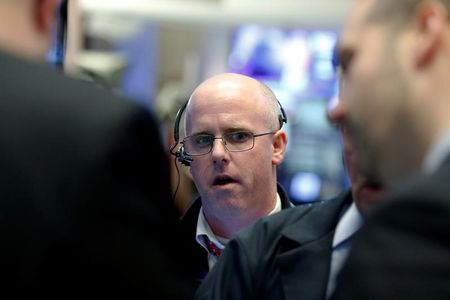US class action settlements flooded with fraudulent claims by scammers
2024.05.02 04:20

By Diana Novak Jones
(Reuters) – Artsana, a maker of child car booster seats, last year agreed to settle claims that it had misled customers about how to use its products, offering $50 to people who had bought Chicco-brand seats.
The company, which did not admit wrongdoing in the settlement, knew it sold roughly 875,000 such seats, yet court records show that by the end of October it had received more than 3.3 million claims for payment.
Faced with a wave of questionable claims, Artsana reversed itself and urged the court not to approve the settlement it had negotiated to end the litigation.
“Criminals targeted the claims process in this case using sophisticated methods to generate large numbers of fraudulent claims,” Artsana’s attorneys told the federal court in Manhattan.
The court sided with Artsana and put the settlement on hold, telling lawyers to return after they had sorted out the fraud issue. The case is still pending, so no claims have been paid, records show.
Fraudulent claims have exploded in the last year, siphoning money out of settlements and threatening the class action system itself, said lawyers and claims administrators interviewed by Reuters.
More than 80 million claims submitted in 2023 showed “significant” signs of fraud, up more than 19,000% since 2021, according to a report expected to be released on Thursday by digital payment processor Digital Disbursements, which works with class action claims administrators.
“It’s an existential threat to the whole process,” said Chris Chorba, a partner at Gibson, Dunn & Crutcher who represents Artsana.
In settlements where a company agrees to pay a set amount, fraudulent claims can reduce the pool of money available for consumers actually entitled to a recovery, the experts said. In cases where companies agree to pay each claimant individually, fraud can blow up the cost of settling.
Exactly how much money is stolen from settlements through fraud is hard to quantify, said Steve Weisbrot, president and CEO of claims administrator Angeion Group, because successful fraudsters evade those trying to stop them. He said it is reasonable to think millions of dollars have been siphoned out of settlements in recent years.
“Someone is making money off of it, or it would stop,” Weisbrot said.
Plaintiffs’ attorney Don Beshada, whose software company Claimscore evaluates settlement claims for fraud, said he has identified at least eight settlements in federal and state courts that have been attacked by a similar wave of fraudulent claims since last year.
Among the cases Beshada and other administrators flagged was a class action against Grande Cosmetics over claims that its eyelash growth serum contained a chemical that required regulatory approval. The company settled the case without admitting liability for a little over $6 million. By April, 6.5 million claims had been filed, with just over 110,000 ultimately deemed valid by Claimscore and claims administrator Angeion Group, court records show.
Neither Grande nor its lawyers responded to requests for comment. The company and attorneys for the class have urged the judge to approve the settlement, with plaintiffs’ attorneys noting the number of claims deemed valid represented a significant portion of the 1 million customers the company had estimated were affected. The judge has yet to issue a ruling.
About 80% of the 14 million claims were likely fraudulent in a $45.5 million settlement in a class action accusing tobacco giant Altria (NYSE:) with misleading consumers about the addictiveness of its Juul products, administrators from Epiq Global told the California federal court. Altria settled without admitting liability.
Neither Altria nor its lawyers responded to requests for comment. The settlement, approved in March, will be divided among all claims the administrators deem valid.
Fraud is generally more common in cases involving allegations of false advertising or defective products that yield small payouts and may not require proof of purchase, lawyers and claims administrators say. Companies settling such cases are generally released from liability for essentially all allegations, so even class members who get little or no payout cannot sue again.
This is not a new problem. In 2018, Reuters reported on scammers using automated bots to submit fake claims in class actions. But experts say fraudulent claims now are increasingly submitted not by bots but by groups of people using stolen identities and addresses, collecting payouts via check or digital payment. Some claims administrators suspect fraudsters use masked or stolen IP addresses to hide their locations.
In the short-term, weeding through all those claims can mean more money for administrators who charge defendant companies more to review a higher number of claims, Weisbrot said.
But in the long run, companies may become less willing to settle cases if they believe their money will go to fraudsters, said Chorba, the defense attorney who has represented several companies whose settlements have been targeted.
Plaintiffs’ attorneys, including Eli Wade-Scott, the head of the class action practice at plaintiffs’ firm Edelson, told Reuters fake claims are undermining efforts to improve the rate of claims by people who actually are entitled to part of the settlement. The attorneys said overly stringent tactics by administrators to crack down on fraud could make things harder for real claimants.
“Claims rates have to be excellent and those claims have to be real,” Wade-Scott said.








